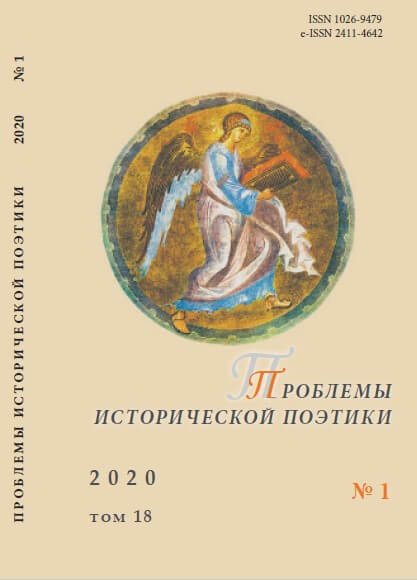Родное и вселенское в «Мертвых душах» Н. В. Гоголя: парафрастический контекст понимания
The Native and the Universal in the “Dead Souls”: A Paraphrastic Context of Understanding
Author(s): Ivan EsaulovSubject(s): Christian Theology and Religion, Aesthetics, Comparative Study of Literature, Russian Literature, Other Language Literature, Eastern Orthodoxy, Theory of Literature
Published by: Петрозаводский государственный университет
Keywords: the native; the universal; paraphrase; contexts of understanding; Gogol; Dante; Dead Souls; Divine Comedy;
Summary/Abstract: Based on the material of “Dead Souls”, the problem of the correlation of the “native” and the “universal” is considered. The author of the article highlights the special paraphrastic aspect of the interpretation of Russian classical literature, which includes both Western European aesthetic landmarks and the Orthodox cultural tradition, emphasizing their interweaving and mutual influence. In this aspect, the need to restore the full version of the name of Gogol’s poem is argued. The semantics of the cover of a separate edition of “Dead Souls” is analyzed. The author traces the paraphrastic context of the poem, referring to Dante’s “Divine Comedy”, which does not come down to motives, reminiscences, plot coincidences, but actualizes the unified Christian meaning of the Easter end of the earthly path, interpreted differently within the framework of Catholic and Orthodox cultural traditions. The semantics of the final Easter transformation of the “native” horizontal of Russia into the spiritual vertical of holy Russia in “Dead Souls” is revealed.
Journal: Проблемы исторической поэтики
- Issue Year: 18/2020
- Issue No: 1
- Page Range: 175-210
- Page Count: 36
- Language: Russian

